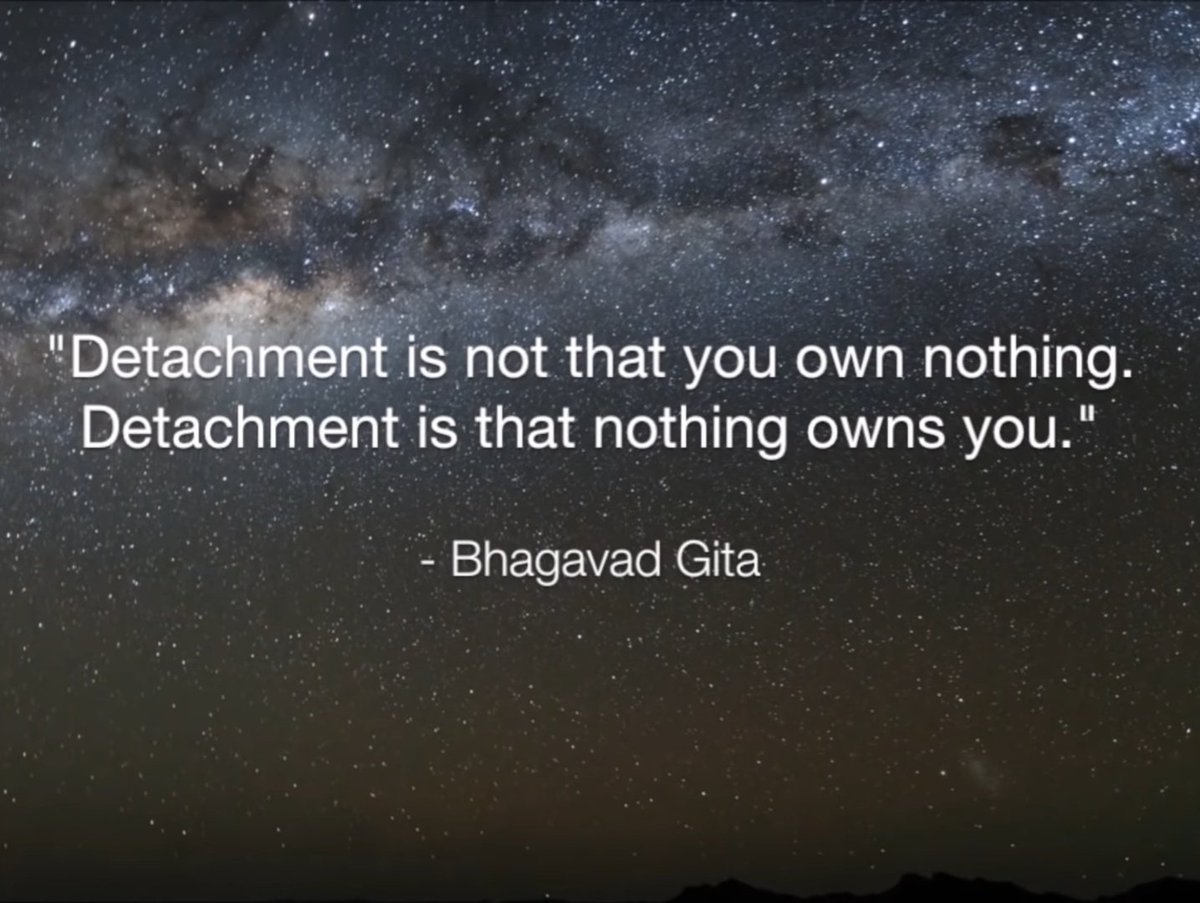
( a destination to journey towards)
continuing on with Patanjali
Vairagya is usually interpreted as being 'detached' about things: thoughts, feelings, events. And sadly, I have also witnessed many cases when it was practiced as a coldness, an uncaring. I found, during my spiritual odyssey, that I became more and more caring about people, all creatures, all of nature, and the environment.
Maybe we had it all wrong? Maybe the 'detachment' was supposed to be from getting involved in the internal and external chitter chatter? I would define the external chitter chatter as things that aren't helpful to our life, such as events and people that cause us angst, and other such similar things. Remember, this comes near the front of Patanjali's Sutras, so at this stage, we are not yet enlightened, we are just starting out on our spiritual journey.
As we progress, though, we do move into more and more sublime states, and a deeper, truer form of vairagya does manifest. We simply stop in increments, bit by bit, we don't get involved in things (external chitter chatter). And this is how we become discerning, which is another meaning for vairagya.
And it's also a more logical way to start off on our journey. I know that usually people get into the codes and observances that Patanjali lays out a bit further on in his first chapter, as being what we should do. Because they are the first rungs on the meditation ladder. But, in these sutras, he is telling us how to get to the sublime states, and like all journeys, there must be a beginning.
And, in this way, by learning discernment, we are unknowingly moving into allowing the spiritual energy to flow within us.
Because the four types of cognition (reason; reflection; bliss; sense of Self) follow on from vairagya and abyasa (constant practice), I feel that if we start with these, we are really giving ourselves a great gift in having a better life.
our chakras come into play, too
As we progress, our sense of conscience should increase. It is part of this journey. And, our internal chakras become stimulated. There is great wisdom contained within the chakras and the sense of right and wrong becomes a strong Knowing as we journey through them.
On our journey, we are also coming closer and closer to our Soul. The Soul vibrates in love. That deep heart based love, that eternal love which is deeper and stronger than our emotions.
These are profound clues about vairagya. A sense of right and wrong, and love. Love is an inherent part of our True Nature; it grows as we progress. And, it is intimately connected with right and wrong.
The love for oneself is important too. Doing constant practice on the four types of cognition will help our sense of self worth be strong. How do we do this? As mentioned in the previous post, when the opposite of these cognition are happening, there is something within oneself, or happening from others, which is not positive, and these are signposts to letting us know that something is not right.
a personal note
I so wish that the four cognitions and a more reasonable approach to vairagya, had been emphasised, when I first started with Patanjali. It would have made my life, and others' lives, so much better. To my concern, decades later, I watched The New Wave of spiritual aspirants jumping straight into their concepts of codes of conduct and observances, as The Way, without any real understanding and with The Dogma of the time.
To be honest, this personal note is the real reason that I am writing all of this, in the hope that it will make even just one person have an easier journey.
Comments
Post a Comment
You can leave comments here - comments are moderated for the time being.